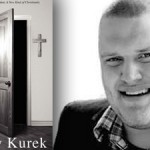Here’s an excellent statement:
“Innovation often originates outside the existing organizations, in part because successful organizations acquire a commitment to the status quo and a resistance to ideas that might change it†(Nathan Rosenburg, quoted in Guy Kawasaki, The Art of the Start, p. 19).
This is one of the issues of any institution, including the church. I read lots of material on the desperate need for innovative thinking to change the church. It is desperate for all the obvious reasons that I won’t get into right now. The problem is that most of this material is written from within the institution, by people like me—paid professionals.
Which is why the desert is such a strong and important symbol in scripture and throughout the history of the church. If we want to critique the church and change it innovatively, we MUST go to the desert for a new vision.
Wendell Berry, the American social critic, has something to say about this in his book, The Unsettling of America. Berry believes the pursuit of truth is better than the protection of truth. Once the mind has “consented to be orthodoxâ€, then it becomes “narrow, rigid, mercenary, morally corrupt, and vengeful against dissenters.†He says this is the nature of orthodoxy: “one who presumes to know the truth does not look for it†(p. 174). He draws a direct analogy from religion:
“The pattern of orthodoxy in religion, because it is well known, gives us a useful paradigm. The encrusted religious structure is not changed by its institutional dependents– they are part of the crust. It is changed by one who goes alone to the wilderness, where he fasts and prays, and returns with cleansed vision. In going alone, he goes independent of institutions, forswearing orthodoxy (‘right opinion’). In going to the wilderness he goes to the margin, where he is surrounded by the possibilities– by no means all good– that orthodoxy has excluded. By fasting he disengages his thoughts from the immediate issues of livelihood; his willing hunger takes his mind off the payroll, so to speak. And by praying he acknowledges ignorance; the orthodox presume to know, whereas the marginal person is trying to find out. He returns to the community not necessarily with new truth, but with a new vision of the truth he see it more whole than before†(p. 174).
Let’s go to the desert! Or maybe recognize that we are already there and take advantage of it.











